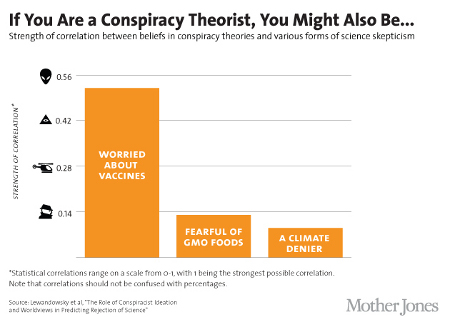
Stephan Lewandowsky, professor of cognitive psychology at the University of Bristol. Photograph: Stephan Lewandowsky
Given that fewer than 3% of peer-reviewed climate science papers conclude that the human influence on global warming is minimal, climate contrarians have obviously been unable to make a convincing scientific case. Thus in order to advance their agenda of delaying climate solutions and maintaining the status quo in the face of a 97% expert consensus suggesting that this is a high-risk path, contrarians have engaged in a variety of unconventional tactics.
* Funding a campaign to deny the expert climate consensus.
* Harassing climate scientists and universities with frivolous Freedom of Information Act requests.
* Engaging in personal, defamatory public attacks on climate scientists.
* Flooding climate scientists with abusive emails.
* Illegally hacking university servers and stealing their emails.
* Illegally hacking climate science websites
* Harassing journals to retract inconvenient research.
* Harassing climate scientists and universities with frivolous Freedom of Information Act requests.
* Engaging in personal, defamatory public attacks on climate scientists.
* Flooding climate scientists with abusive emails.
* Illegally hacking university servers and stealing their emails.
* Illegally hacking climate science websites
* Harassing journals to retract inconvenient research.
That final tactic has evolved, from merely sending the journal publishers a petition signed by a bunch of contrarians, to sending journals letters threatening libel and defamation lawsuits. Although to date all editors involved have resisted such unwarranted intimidation, an online journal is on the verge of retracting a paper due to worries about lawsuits.
NASA Faked the Moon Landing
The story begins with the publication of a paper titled "NASA Faked the Moon Landing—Therefore, (Climate) Science Is a Hoax: An Anatomy of the Motivated Rejection of Science." The paper was authored by Lewandowsky, Oberauer and Gignac, and published in the journal Psychological Science in 2012. Using survey data from visitors to climate blogs, the paper found that conspiracy theorists are more likely to be skeptical of scientists' conclusions about vaccinations, genetically modified foods, and climate change.
This result was replicated in a follow-up study using a representative U.S. sample that obtained the same result linking conspiratorial thinking to climate denial.

Suffice it to say, climate contrarians didn't like the conclusions of this paper. Ironically, many contrarian bloggers and blog commenters came up with a variety of conspiracy theories about the Lewandowsky paper. As Lewandowsky and John Cook later wrote,
"These range from 'global climate activist operation' to 'ringleader for conspiratorial activities by the green climate bloggers,' to Stephan Lewandowsky receiving millions of dollars to run The Conversation."
The contrarians had inadvertently provided fertile material for further research, which John Cook began to harvest, collecting all of the blog conspiracy theories about their conspiracy theory paper into a spreadsheet. That catalogue became the basis for a follow-up paper.
Recursive Fury
Lewandowsky, known for his creative publication titles, came up with another doozy for the follow-up paper: Recursive fury: conspiracist ideation in the blogosphere in response to research on conspiracist ideation. The paper, authored by Lewandowsky, Cook, Oberauer and Marriott, was published in the journal Frontiers on 18 March 2013. That study concluded,
"...many of the [conspiratorial] hypotheses exhibited conspiratorial content and counterfactual thinking. For example, whereas hypotheses were initially narrowly focused on LOG12 [the NASA paper], some ultimately grew in scope to include actors beyond the authors of LOG12, such as university executives, a media organization, and the Australian government. The overall pattern of the blogosphere's response to LOG12 illustrates the possible role of conspiracist ideation in the rejection of science, although alternative scholarly interpretations may be advanced in the future."
Stepping back for a moment to take stock of the situation, it's really not surprising that climate contrarians as a group would tend to exhibit conspiratorial thinking. After all, 97% of climate experts and climate research contradicts their beliefs. When you're a non-expert who doesn't want to believe the conclusions of 97% of experts, how do you justify that position, psychologically? Writing those experts off as being part of a conspiracy is probably the easiest avenue to take.
Frontiers Bails Out
However, nobody likes being called a conspiracy theorist, and thus climate contrarians really didn't appreciate "Recursive Fury." Very soon after its publication, the journal Frontiers was receiving letters from contrarians threatening libel lawsuits (Graham Readfearn has some details). In late March 2013, the journal decided to "provisionally remove the link to the article while these issues are investigated." The paper was in limbo for nearly a full year until Frontiers finally caved in to these threats.
In its investigation, the journal found no academic or ethical problems with "Recursive Fury." However, the fear of being sued by contrarians for libel remained. Frontiers explains (emphasis added),
"In the light of a small number of complaints received following publication of the original research article cited above, Frontiers carried out a detailed investigation of the academic, ethical and legal aspects of the work. This investigation did not identify any issues with the academic and ethical aspects of the study. It did, however, determine that the legal context is insufficiently clear and therefore Frontiers wishes to retract the published article. The authors understand this decision, while they stand by their article and regret the limitations on academic freedom which can be caused by legal factors."
The University of Western Australia (UWA: Lewandowsky's university when "Recursive Fury" was published – he later moved to the University of Bristol) also investigated the matter and found no academic, ethical, or legal problems with the paper. In fact, UWA is so confident in the validity of the paper that they're hosting it on their own servers.
After nearly a year of discussions between the journal, the paper's authors, and lawyers on both sides, Frontiers made it clear that they were unwilling to take the risk of publishing the paper and being open to potential frivolous lawsuits. Peter Sinclair has a video of Lewandowsky discussing the contrarian academic censorship strategies.
It's unfortunate that the Frontiers editors were unwilling to stand behind a study that they admitted was sound from an academic and ethical standpoint, especially since UWA concluded the paper would withstand a legal assault. This series of events should be a wake-up call to editors and publishers that they must remain resilient to organized campaigns by the blogosphere. Academics can no longer be confident that the Frontiers staff will stand behind them if they publish research in the journal and are subjected to similar frivolous attacks. Frontiers may very well be worse off having lost the confidence of the academic community than if they had called the bluffs of the contrarians threatening frivolous lawsuits.
Fortunately, several journals and organizations have stood up against this type of contrarian bullying. The journal Environmental Research Letters easily withstood the campaign against our consensus paper, and the Australian Psychological Society has been very supportive of Lewandowsky and his team, as has the Association for Psychological Science. These groups offer a good example for journals to follow when subjected to organized bullying from contrarians trying to censor sound but inconvenient research.







No comments:
Post a Comment